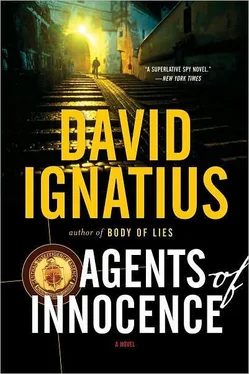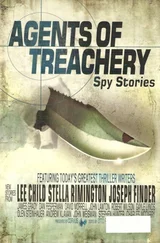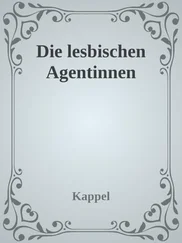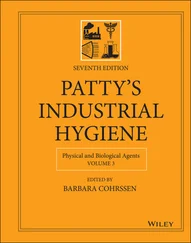David Ignatius - Agents of Innocence
Здесь есть возможность читать онлайн «David Ignatius - Agents of Innocence» весь текст электронной книги совершенно бесплатно (целиком полную версию без сокращений). В некоторых случаях можно слушать аудио, скачать через торрент в формате fb2 и присутствует краткое содержание. Жанр: Шпионский детектив, на английском языке. Описание произведения, (предисловие) а так же отзывы посетителей доступны на портале библиотеки ЛибКат.
- Название:Agents of Innocence
- Автор:
- Жанр:
- Год:неизвестен
- ISBN:нет данных
- Рейтинг книги:3 / 5. Голосов: 1
-
Избранное:Добавить в избранное
- Отзывы:
-
Ваша оценка:
- 60
- 1
- 2
- 3
- 4
- 5
Agents of Innocence: краткое содержание, описание и аннотация
Предлагаем к чтению аннотацию, описание, краткое содержание или предисловие (зависит от того, что написал сам автор книги «Agents of Innocence»). Если вы не нашли необходимую информацию о книге — напишите в комментариях, мы постараемся отыскать её.
Agents of Innocence — читать онлайн бесплатно полную книгу (весь текст) целиком
Ниже представлен текст книги, разбитый по страницам. Система сохранения места последней прочитанной страницы, позволяет с удобством читать онлайн бесплатно книгу «Agents of Innocence», без необходимости каждый раз заново искать на чём Вы остановились. Поставьте закладку, и сможете в любой момент перейти на страницу, на которой закончили чтение.
Интервал:
Закладка:
A young woman from the Office of Security had already arrived at the villa and prepared dinner. The real reason for her presence was to administer a polygraph test. She had brought the machine in a discreet, cream-colored suitcase.
Fuad arrived precisely on time. He looked small and somewhat frail in the dark. His skin, which seemed so lustrous in the sunshine, looked pale at night.
Rogers greeted him warmly, but the Lebanese seemed to be on guard. As he entered the house, he caught sight of the cream-colored suitcase that was parked in the hall; then he noticed the woman from the Office of Security, who was standing attentively in the pantry.
“You do not trust me, Mr. Reilly?” asked Fuad.
“No more or less than before,” said Rogers. He led Fuad to a large room overlooking the panorama of Beirut. Far below were the lights of Jounie, the ships at anchor in St. Georges Bay, and the starlit coast of West Beirut.
“Y’Allah! Let’s go,” said Fuad. “If it’s time to use the lie-detector machine again, I’m ready. I have nothing to hide.”
Rogers lit up a cigar. He was relieved. He had half-expected that Fuad would refuse to take the polygraph, which would abort the operation right there.
“We’ll do the test later,” said Rogers. “Right now, I’d like to hear more about you, without any wires hooked up.”
They talked until 2:00 A.M. Fuad unfolded the story of his early life, yard by yard. Rogers listened, puffing on his cigar, measuring Fuad’s history against his own mental profile of what makes a reliable agent.
“We are like mirrors,” said the Lebanese as he began his tale. “We reflect what is in front of us.”
“I’m not sure I follow you,” said Rogers.
“I mean that I am a product of my environment. My loyalties and hatreds were stamped on me a long time ago.”
“Tell me,” said Rogers.
Fuad took out his worry beads and then, deciding that they were a sign of anxiety and superstition, put them on the table.
“I was born in the village of Saadiyat al-Arab, twelve miles south of Beirut and two miles inland from the sea,” he said.
“To call it a village overstates things. It was really no more than a gas pump and a store and a few dozen houses. The only thing that made it unusual, for Lebanon, was that it was in the wrong place. It was a Moslem outpost on a stretch of road between two Maronite Christian villages: Saadiyat, by the Mediterranean, and Dibbiye in the hills.”
“With you in the middle,” said Rogers.
Fuad nodded. He had an earnest look, as if he wanted Rogers very much to understand the story he was telling.
“When I was a boy, religion bounded my world like the four points of a compass. The Christians were on either side, in Saadiyat and Dibbiye. The Druse were over the hill in Jahiliyeh. The Sunnis, outside my village, were in Burjain atop another hill. The Shiites were to the south, in Sidon and Tyre. And in Beirut were the rulers, who cared not at all about our little Sunni enclave in the midst of a Christian area.
“The local political leaders seemed in those days to be fixed as eternally as the stars. Perhaps they were, for all of them are still here. We called them the zaim. The big men. They were all big crooks and liars.
“My father was an officer in the national police force, which we called the Internal Security Force to make it sound more grand. It was controlled by the Sunnis, and my father got his job through an uncle in Beirut. The headquarters for our district were in Damour, several miles up the coast. My father didn’t even have an office in Saadiyat. Just his motorcycle and a khaki uniform. But he was still the most important man in our village.”
Rogers wondered whether to tell Fuad that his father, too, had been a policeman, then decided against it. At this point, what was needed between him and Fuad was distance, not familiarity.
“Because of his job,” continued Fuad, “my father became friendly with some of the Christian families who lived up the road in Dibbiye. On Sundays, my father would take me to the house of the richest man in Dibbiye, who we called Emile-Bey. It was a great mansion on top of the highest hill in the area. The fishermen from Saadiyat said they could see the red tile roof of Emile-Bey’s house from many miles out at sea.
“Emile-Bey took an interest in my education. Perhaps because I was a poor Moslem boy and he was a wealthy Maronite who hated the sectarianism of Lebanon. Perhaps because he had no son of his own. I don’t know why. But he tutored me in Arabic, French, and eventually English.
“When I was fourteen, he arranged for me to go to an English-language school several miles away in the village of Mishrif. He said the era of the French in Lebanon was over. The era of the Americans was beginning.”
“Was he right, do you think?” asked Rogers.
“We shall see.”
“Yes indeed,” said Rogers. “We shall see.”
“I loved that school,” Fuad continued. “The other students were so much more sophisticated than I was. They wore fine clothes and some of them had travelled abroad. I loved to speak English with them. It became a kind of snobbery. When we were around poor Arab boys in Mishrif, we would always speak English. They must have hated us for it.
“By the time I was in high school, I loathed my village. I hated the moukhtar, the village leader, who had bad teeth and always had crumbs of food in his mustache. I was embarrassed by my sisters, who were married and already had too many children, and by my cousins, who were poor and stupid. Most of all, I was embarrassed by the backwardness of Arab village life.
“You cannot know what it was like to be a young Arab in that time, dreaming of the liberation of your people from so much stupidity. In school, that was all we talked about. We gathered around the radio to hear Nasser speak from Cairo on a station called the Voice of the Arabs. We skipped school when Inam Raad and Antun Saade, two famous Syrian nationalists, came to Mishrif and addressed a public meeting. That was when I began to think that America was the answer for the Arabs.”
“Why?” asked Rogers.
“I don’t know,” said the Lebanese. “Perhaps because America seemed so pure. And so far away.
“For whatever reason, I decided then that I would go to the American University of Beirut. Emile-Bey encouraged me and offered to help pay the cost of my studies. And he did something else.”
“What was that?” asked Rogers.
“He sent me to America, as a graduation gift, the summer after I finished high school. What a trip it was! The flight took nearly seventy hours by propeller plane. We stopped in Paris, Dublin, Newfoundland, and New York. I felt as if I had landed in another world.”
“Where did you stay in America?”
“With an American family who were friends of Emile-Bey. A doctor’s family. It was paradise. They had a swimming pool and fruit orchards. They took me to movies and camping trips in the mountains. Can you imagine what that was like? For an Arab boy whose childhood memories were of dust and mud and chickens in the yard? When I got back to Lebanon at the end of the summer, I was in love.”
“With who?”
“With America.”
Fuad paused. He looked away from Rogers and toward the window and the lights of Beirut beyond.
“Can I have a drink?” asked Fuad.
“Sure,” said Rogers. “What would you like?”
“Whisky.”
Rogers returned from the kitchen with two large tumblers of Scotch.
“You were talking about falling in love with America,” said Rogers.
“Lebanon must have been jealous,” said Fuad. “For it soon took its revenge.”
“What happened?”
“In 1964, when I was a senior at the American University of Beirut, the dean of students called me into his office one day and told me that my father had been killed-murdered-in a political quarrel. He told me that it was too dangerous for me to go to Saadiyat-al-Arab and that I would have to stay in Beirut for a few days. He offered to help me.”
Читать дальшеИнтервал:
Закладка:
Похожие книги на «Agents of Innocence»
Представляем Вашему вниманию похожие книги на «Agents of Innocence» списком для выбора. Мы отобрали схожую по названию и смыслу литературу в надежде предоставить читателям больше вариантов отыскать новые, интересные, ещё непрочитанные произведения.
Обсуждение, отзывы о книге «Agents of Innocence» и просто собственные мнения читателей. Оставьте ваши комментарии, напишите, что Вы думаете о произведении, его смысле или главных героях. Укажите что конкретно понравилось, а что нет, и почему Вы так считаете.












